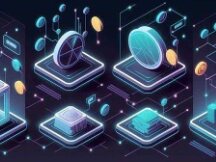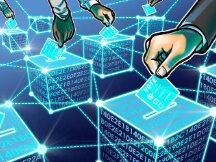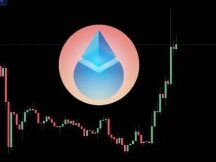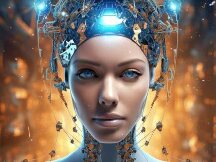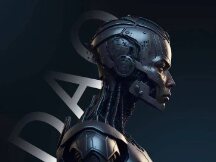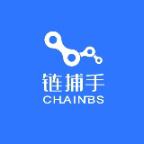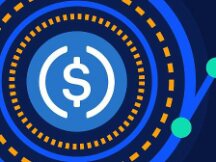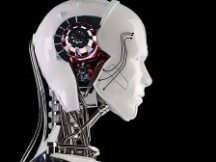Future operations will be possible not only in the company, but also in DAOs and encrypted networks.
The modern way to earn money is to "work for the money", but in the future the income will be "x-for-the-money".
Recently, a16z posted an article on its official website by Ben Schecter, Executive Director of RabbitHole, who believes the future of utility with advancements in crypto processes is not just about industry, but also DAOs and future income. "X-gains".
“In a world of complex information and environmental partners, companies are no longer qualified to manage our activities. Confidential communications will lead to strained participant relationships, and DAOs will become the norm in this new world.
In the future, ordinary people will no longer work for the company. Instead, people will make money through non-traditional ways of doing things like playing games, learning new skills, creating art, or editing content. These changes in the way we work are not uncommon or unthinkable. The idea that most people would be employed by large corporations seemed crazy to some in the 1800s.
This future innovation will be accomplished through networks developed around cryptographic processes that have become new ways of integrating, measuring and rewarding complex ecosystems. This transformation began to open up new monetization capabilities for individuals and led to an increase in the value of organizations for individuals participating in the partnership.
The usual way to make money is to "work to earn money", but in the future the income is "X-to-earn" where you play games to earn money, learn to earn money and work to earn money.
But that won't happen by magic. We need a new decentralized autonomous organization (DAO) capable of handling all these new tasks in terms of business. This information provides a basis for understanding the options available in future work.
Limitations of the Company as a Joint Venture
First, it is necessary to explain the disadvantages of the existing income model. The work still operates as a joint venture in the age data has become incomplete. We have seen this in the emergence of other types of income such as influencers, entrepreneurs, manufacturers, and industry concert attendees. While this way of making money doesn't necessarily feel like “working,” these are examples of participants in a partnership providing personal value and making money by getting involved.
However, the number of opportunities is not always low, and when possible, participants are often unpredictable. Indeed, it is also based on the web2 paradigm, in which the company still manages its economic model.
More and more companies still have “stakeholders”, that is, participants blinded by internal and external members of the organization. Think about Apple and the developers who make the App Store apps, YouTube, and the developers, Uber and drivers. When stakeholders contribute to the growth of a business from the outside, it is difficult for companies to extend their support to stakeholders.
As the business grows, it cannot maintain relationships with external stakeholders. The relationship between the business and its members is a zero-sum game, and in order to get the most out of it, the business begins to create value for its members.

Business modeling with strict internal and external boundaries can lead to a better understanding of the age of the industry, but in the case of age, these models can lead to the impact of the relaunch and the exclusion is not possible. In a world of complex data and external partners, companies are not qualified to participate in our activities.
Collaborative work promotes equality of participants, and DAOs become the process of integrating this new world.
DAO makes a new layer
DAO will finally replace the old model. DAOs are online organizations created by people who take on key functions by intelligently contracting and working on products that couldn't be automated with automation (like marketing and software development). ). In practice, not all DAOs are decentralized or autonomous, so it is best to treat them as an integrated online organization and managed by its members.
Although DAO is still in the early stages of development, it's not a good idea. These are real organizations that manage millions of dollars in capital, deliver real goods and services to millions of people, and create new ways of generating income for people.
This is a confirmation of Cooper Turley's current position on the DAO.

There are many types and sizes of DAOs, including Certified DAOs (DAOs) that govern crypto processes, DAOs (investment DAOs) that create resources, DAOs that provide services to other DAOs. DAO) and DAOs that buy NFTs (acquisition DAOs). the. ))), there are many more.
However, each DAO has a set of guidelines that sets them apart from traditional organizations (this is general and will depend on your specific circumstances).

These events that set DAOs apart from traditional organizations have enabled DAOs to build relationships with stakeholders and stakeholders. DAO is not limited to legal borders and functions as an open market that promotes the benefits of whatever it provides. As Chris Dixon pointed out:
Encrypted networks use a variety of processes to remain neutral while growing and preventing changes between lines and media. First, the contract between the network is encrypted and its participants are executed in open source code.
Second, we control through "voice" and "exit" mechanisms. The participants made their voices heard through community governance, notably “on-chain” (on contracts) and “off-chain” (on the information environment). Participants can leave the network to sell their tokens or, in extreme cases, exit the fork protocol.
The DAO model is inherently open and accountable, which is an important ability to convey importance to the participants who created it. Otherwise, other DAOs will win them in the tournament, or participants will go looking for another opportunity.
In fact, the best DAOs reward members and are the backbone of member companies. A good and solid result is the basis of X-to-benefit which will lead to the future of work.
The future of DAO "works"
In order to better understand the options available to humans, we need to explore the specific models of DAOs.

The images are inspired by Brian Flynn, Zakku and the Orbit group
As an open market, DAO will support the X-to-get difference, making transitions easier, smoother and more interesting than ever.
This openness of the crypto industry allows people to join multiple DAOs and crypto networks and make a difference in member income and returns (remember, the best rank DAO is the membership breakdown for the participation of common characters).
People's income can be what we do for a living (like sports), how we think about traditional activities (e.g. bonuses / contracts), and less than the person can earn (e.g. investments, passive income) is not visible. ). In other words, the DAO will expand the type and number of openings for different types of participation, including insurers, hunters and dignitaries.
For example, token holders can earn income through large DeFi processes, income from multiple tokens, etc. play P2E games.
In future new jobs, the work will be short and hard. Job changes become less expensive, methods become clearer, jobs are reduced to more atoms, and the world comes together in one place forever. We will find new opportunities based on our history of chain, membership and reputation, and we will match what we have with the best of what we can help.
Below is a detailed description of how participants find ways to make money with DAOs.
Key stakeholders: working to win
Key sponsors are the employees we still think of today: full-time employees focused on one (sometimes 2-3) project or organization. Analysis allows people to collaborate on projects and collect information and ideas.
The demand for high-level staff and design work will not go away, but in web3 this group will be smaller than in the past. Software and smart contracts allow a small group to have a big impact. Instagram was bought by Facebook, then a group of 13 people, for $ 1 billion. Such benefits will become more common in the future due to the power of software automation and larger networks of small participants to keep key group participants in a smaller area. .
In the future, there will no longer be a difference between working for this team and working for the company. The DAO will also have key sponsors with a vested interest in the health of the organization. A DAO is more transparent than the company and can be counted by the community at large, but only because it is more sensitive (seen as censorship by the police).
Bounty Hunter: Help Raise Money (Start Earning Income)
"Bounty Hunters" performs the task clearly stated on the offer based on price and / or timing. They are usually finance, design, and design experts, simultaneously assisting multiple DAOs and performing specialized tasks in specific areas.
Donations are generally made public to all applicants and can at times be competitive, rewarding the best posters based on the quality and cost of entry after failure.
Many hunters will need to cooperate to develop their own DAO program. Think of these organizations as organizations that provide support to DAOs that are not eligible. The result of DAO services is to perform tasks that require operational knowledge, such as financial management (eg Llama), software development (eg RaidGuild), administration (eg electricity), etc.
Hunters and DAOs may be similar to contractors and professional service providers, but they are different and more popular than DAOs for a number of reasons:
Smart contracts automate many core DAO tasks, leaving behind a wide range of clearly defined, specialized, and profitable peripheral tasks from revenue.
DAOs will try to push operations to the region to control distribution and avoid major hierarchies, and Bounty will create a stable way to do so.
The transparency of DAO will reduce the cost of repairing revenues.
Partners: Partners - Earn (Start Engaging & Win)
It's true and it's probably the most exciting part of future work. This is what most people give in the DAO.
Networks are fed by several activities and several participants. But over the years, consumers, consumers, and attendees have added value to the network without getting their share of the cost (like the app developers at Apple, the creators of YouTube, and Uber).
Compared to closed organizations, DAOs are more of an open market. DAOs reward everyone for their contribution, regardless of their origin, based on the value they offer. This means that the daily activities that benefit the network have been transformed into income-generating activities.
Almost anyone can earn an income by living online, using products, and interacting with users. Make money with people who have paid to participate in similar games online.
Play to win
Play to Win is a new type of game that rewards players with the ability to play and complete in-game achievements. Existing game models are complemented by changing the value for the developer or the game platform, and the game receives the game and rewards the user.
Being able to play financially is like having a business. Players invest effort (time and energy) and capital (usually by purchasing NFTs to participate in the game) and benefit from the token for success and clear success in the game. Earning money in sports is nothing new, but it is not a good gift for players with special rewards in sports, sports are used to play to distribute exchange gifts. eh.
This means that videographers can pay their bills with their in-game achievements, especially for those who live in countries where the prices are lower and the prices are lower. This event turned into revenue for millions, most notably through Axie Infinity.
Axie is a popular blockchain game that allows players to buy, breed, battle, and trade NFTs (Axies). Although these actions occur in the game, each user has the Axies they buy or create. The game has been very popular in recent months, with total revenues of over 200,000 ETH (currently 860 million USD) between July and August (this figure has been lost since the rejection, and is the subject of the discussion below. below). )

Source: Axie World
This explosive growth is due to the similarity of support between Axie and its users, explains Axie:
Axie has a 100% player-owned trust company. Instead of selling toys or imitators, game developers focus on integrating players into the game industry and paying small fees to generate income. Axies is developed by players using the capabilities of the game (SLP and AXS) and sold to new / other players. The owners of the AXS tokens are the government that receives the tax refund. The capital and the proceeds of the game can be symbolized and sold to anyone and anywhere in the public P2P store.
Axie paved the way for revenue generation and most importantly, lets people see the big X-to-get models, showing that people can make money by participating in the network.
learn how to earn money
Learning to Win is a new way to learn that you pay, proving that you can learn something, not just education. This can be done when an individual's education, knowledge or additional information is useful to the network and the network is ready to fund education.
In RabbitHole, the crypto protocol pays for the functionality, thus encouraging users to perform certain tasks on the channel. When the user performs these tasks, he benefits from the contract. Wealthy hunters often make construction contracts, but chain activities are often involved in contracts.
This new relationship offers each party the following advantages:
Users learn to use the latest technology or methods in the crypto industry and earn tokens for them.
The cryptographic protocol gets new users.
RabbitHole earns a percentage of the revenue to support interactions.
This new model is similar to that of Google which pays colleges to share a portion of its income by advertising new products or strengthening its network of students. In both cases, they valued the network at no cost, but it is now possible.
Since its release, RabbitHole has raised over $ 750,000 from some of the biggest crypto companies such as Uniswap, Aave, Compound, Picture, Pool, and Polygon. It's still early days, but given the education and advertising revenue that current users aren't receiving, the potential for education payout is endless.
Monetization (Support)
Cryptocurrencies have created a new and rare digital currency, which has paved the way for explosive growth in the NFT industry in recent months. It gives artists around the world the opportunity to earn a living and in some cases get rich from one generation to the next.
However, it is no different from a work in which the artist is paid when their work is completed. What's even better is that developers pay for the extra costs they add to the network, as well as the personal benefits they get from their work.
For example, NFT's SuperRare released 15% of its tokens to early platform users, developers and artists, recognizing the role of value creators in the early success.
Audius is a music advertising regulator, allowing producers to submit songs and edit playlists to receive tokens. Due to the cost of manufacture, Audius makes available to members of the network.
Token holders: trade recovery
Anyone with an internet connection and a crypto wallet can invest in development.
In a world where every network has tokens, the ability to earn tokens and buy tokens by joining the network does not require any authorization and anyone becomes a merchant.
Investing will become an important source of income for more and more people. Not all investments are identified, but individuals can access past segments distributed to a small number of people and be able to open all income classes.
How it will start with DAO and the future of operations
X-to-money gains only go to heart when DAOs go to heart. DAO shows that there is a lot of hope, but it is only in its infancy and there is still a long way to go before its mission becomes a reality. In a recent survey by Gitcoin and Bankless of 422 DAO participants, less than 45% of respondents identified DAO as their income.

For DAOs to be at the heart of their work, they must develop procedures, tools and systems that can support them and their members.
repair tool
Most DAOs now rely on a Web2 software integration that is not designed for DAOs or basic Web3 software. However, the provisions of the DAO have not yet been complied with.
DAOs have incredible potential to harness the power of collaborative intelligence and human intelligence, but they need better software to make it work. DAOs are responsible for management (e.g. Snapshot, Orca), collaboration software (e.g. Radicle), financial management (e.g. Parcel, Multis, Gnosis), collaboration (including Discourse), 'access (eg CollabLand), etc.
What's unique about this phrase is that it's an expanding space that needs new solutions to reward attendees. Since DAOs don't have a CEO or human agency to decide who should pay, a new approach, determining how much a person should pay and how much they should pay. An early but interesting solution is to have your friends choose individual gifts (Collaboration) and use the process to create diagrams and count the gifts (SourceCred).
reputation system
DAOs are open and forbidden, but still need new ways of deciding what to trust, hire, and reward.
The company's solution goes through a general maintenance process, but this goes against the spirit of DAO. An additional problem is that many DAO participants are anonymous. In this new world, DAOs need a new way of deciding who to allocate the least capital to.
This describes the need for a chain reputation system. The reputation of the chain reflects our main characteristics of the blockchain: our involvement in DAO, voter management, insurance, etc. Finally, reputation technology uses the behaviors of these chains to predict our future behavior to determine who is trustworthy, reliable, and consistent. Reputation on the chain will change the way companies now apply for certification, CVs and interviews.
However, tracking information distributed to public privacy activities poses many privacy and security concerns. Currently, blockchain autonomy is address-centric, but more robust distributed autonomy solutions (such as Ceramic / IDX) and self-regulation are needed to realize reputation.
05 ib
Note: Regarding production costs and potential pitfalls
It is not clear how much income can be received through the channel in the long run. X-to-earn doesn't mean that anyone can create art and play video games for a living.
X-to-earn money is rewarded for creating value. DAOs make the path not always secure and accessible to many people, but the market does not reward everyone. The business model is still involved and must add value to be profitable. Developers need to find an audience, players need to benefit, and valuable hunters and partners need to be involved.
However, the ongoing discussion about the stability and measurement of income from special investments does not leave the content of this article. Creating value in the network requires a reward, and DAOs achieve this by collaborating back on value in the crypto network. Earn new money.
More broadly, future performance will not be good at all. As with all major changes, there are usually pros and cons. A DAO would have a similar result. Here are some tips for paying.
Competitiveness and gap
Measuring and rewarding each participant in the network allows a better allocation of resources. The other side of the elite rule is that the global DAO really adds to the authority of the old proving power in the Web2 industry. For example, on Spotify, the top 1.4% developers get 90% of the cost. And true global workers with low exchange rates only increase dynamic competition. If DAO exacerbates this pattern, how will people be able to reconcile the differences in the results?
intellectual overload
The functional power of the human brain is limited. The Dunbar number is a restriction that any relation of the human brain can control, but the "DAObar number" is the DAO version of this concept. How many DAOs can a person join? Every future DAO collaboration will go to great lengths to maintain context and situational awareness. CAD Tools for Communication and Collaboration (discussed above) will try to fix this, but people will struggle with additional tools.
separate states
On the one hand, DAOs allow people to choose how they work and connect with meaningful communities. On the other hand, by reducing the maximum efficiency of atomic units and pure financial incentives, you will reduce human attention to pure economic benefits. We run the risk of turning employees into lone and inefficient workers who turn them into products and services.
There is one example. The future has arrived, but not also. This is true for DAOs and future work. Every day more and more people are joining DAO and getting involved in web3. DAOs grow rapidly and need more capacity to help them accomplish their tasks.
The future of work has arisen and will improve in unexpected and attractive ways.

Scan QR code with WeChat

